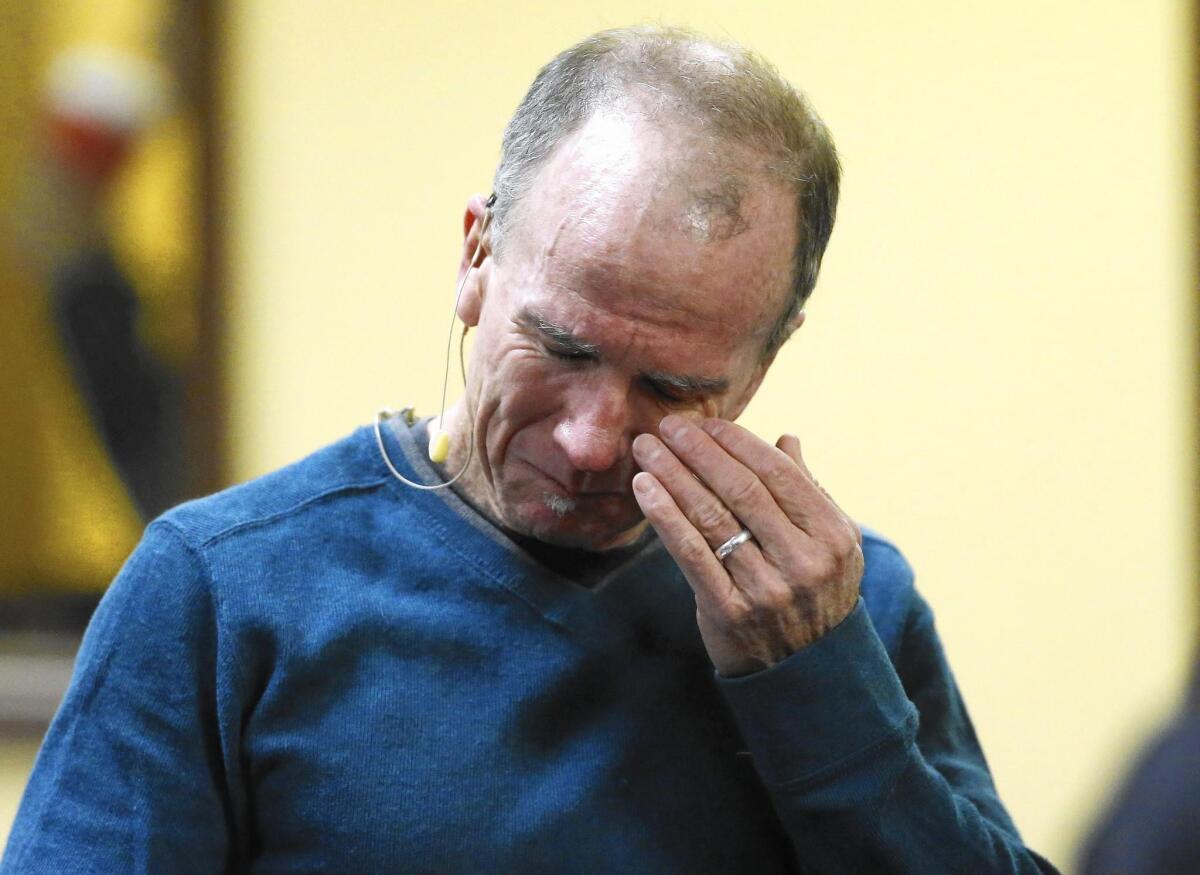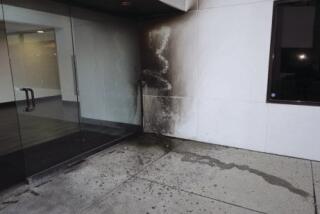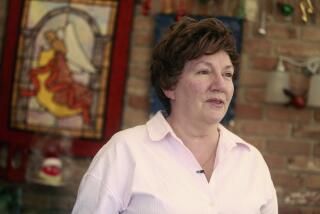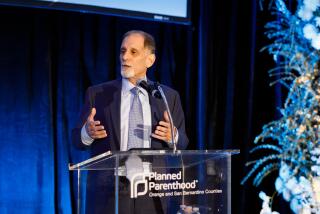Planned Parenthood shooting suspect’s statements could suggest motive

Scott Dontanville, a co-pastor at Hope Chapel in Colorado Springs, Colo., at a service for Garrett Swasey, a police officer killed in a shooting at a Planned Parenthood clinic.
Although Robert Lewis Dear told authorities “no more baby parts” after his arrest on suspicion of several shootings at a Planned Parenthood clinic, according to a law enforcement official, police said Sunday they would not disclose any information on the motive for the attack.
Dear, whom acquaintances have described as an odd, reclusive loner, is expected to make an initial appearance in state court on Monday.
Planned Parenthood cited witnesses as saying the gunman was motivated by opposition to abortion. He killed a police officer, Garrett Swasey, and two civilians: Jennifer Markovsky, 36, a mother of two; and Ke’Arre Stewart, 29, an Iraq war veteran and father of two. Both were accompanying separate friends to the clinic.
Swasey, who worked at the University of Colorado Colorado Springs, was married with two children and was a co-pastor at Hope Chapel, an evangelical church. He was remembered Sunday by parishioners who watched a video of him ice skating. Before he became a police officer, Swasey was a junior national couples ice-dancing champion.
The law enforcement official who recounted Dear’s statement spoke on condition of anonymity because the official was not allowed to publicly discuss the ongoing investigation. The official said the “no more baby parts” comment was among a number of statements Dear made to authorities after his arrest, making it difficult to know his specific motivation.
Still, U.S. Atty. John Walsh said investigators had been in touch with lawyers from the Justice Department’s civil rights and national security divisions, suggesting officials could pursue federal charges in addition to state homicide ones. One possible avenue is the 1994 Freedom of Access to Clinic Entrances Act, which makes it a crime to injure or intimidate clinic patients and employees.
The attack thrust the clinic into the center of the debate over Planned Parenthood, which was reignited in July when antiabortion activists released undercover video they said showed the group’s personnel negotiating the sale of fetal organs.
Planned Parenthood has denied seeking any payments beyond legally permitted reimbursement costs for donating the organs to researchers. Still, the National Abortion Federation says it has since seen a rise in threats at clinics nationwide.
Vicki Cowart, the regional head of Planned Parenthood, said Sunday on ABC’s “This Week” that the organization has faced hateful speech.
“I can’t believe that this isn’t contributing to some folks, mentally unwell or not, thinking that it’s OK to — to target Planned Parenthood or to target abortion providers,” she said.
Colorado Gov. John Hickenlooper on CNN’s “State of the Union” called the attack “a form of terrorism” and said people needed to be mindful of “inflammatory rhetoric.”
More to Read
Start your day right
Sign up for Essential California for news, features and recommendations from the L.A. Times and beyond in your inbox six days a week.
You may occasionally receive promotional content from the Los Angeles Times.






